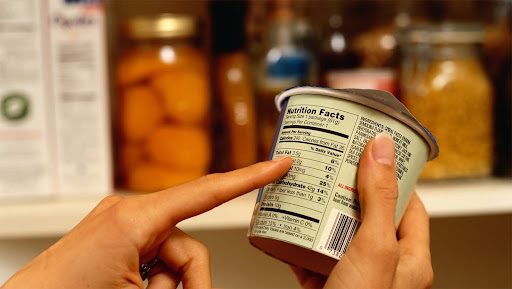
In the world of food packaging, there’s a hidden factor that plays a crucial role in ensuring the freshness and safety of our meals – synthetic labels. These small labels adhere to food packaging, may seem insignificant, but they carry essential information and perform extraordinary tasks to ensure and guarantee the quality of the food we consume.
The significance of synthetic materials used for food packaging and their silent yet significant role in preserving the integrity of the food we consume are as follows.
Understanding Synthetic Labels:
Synthetic materials for food labelling play a vital role in food packaging. These labels are made from synthetic materials like polyester or nylon, which means that they are man-made. Unlike traditional paper labels, synthetic labels offer various benefits, such as durability, resistance to moisture, and the ability to withstand different environmental conditions.
The Silent Guardians in Food Packaging:
Now, let’s explore how these labels become the silent guardians of our food. When you grab a snack from the store, take a closer look at the packaging. You’ll likely find a small label that contains important information about the product. This includes details like the ingredients, nutritional facts, and expiration date.
The role of these synthetic labels is not just about displaying information. They act as a protective shield for the food inside the packaging. These labels create a barrier against external factors like humidity and air, preventing them from affecting the quality and freshness of the food.
Imagine you’re enjoying a bag of your favorite chips. The label on the packaging is working hard to keep the chips crisp and tasty by preventing moisture from getting in. This ensures that your snack stays just as delicious as the day it was packaged.
Synthetic Materials:
One special type of synthetic fabric that deserves a spotlight is Tyvek. Tyvek is a unique material known for its strength and durability. Whether it’s a catchy logo, vibrant colors, or an eye-catching design with nutritional information, Tyvek labels allow brands to express their personality and connect with more consumers in food packaging due to their resistance to water, tearing, and other factors like freezing in the refrigerator or heating in the oven.
These labels are like the superheroes of the label world, providing an extra layer of protection to keep our food safe and sound. These labels are especially crucial for products that might encounter rough handling during transportation or storage.
The Journey from Packaging to User:
These labels play a vital role in maintaining the integrity of the food during this journey of a packaged product from the factory to your end user. From the manufacturing facility to the distribution center and finally to the store, these labels ensure that the food inside remains in its best possible condition.
As the packaged food awaits its turn on the store shelf, these labels are there, silently guarding against any potential threats. Whether it’s changes in temperature, humidity, or other external elements, these labels work tirelessly to preserve the freshness and quality of the food.
Sustainability and Synthetic Labels:
In recent years, there has been an increased focus on sustainability adopts a broader perspective, ensuring that our actions today don’t compromise the future and eco-friendly packaging practices by focusing on minimizing harm. Synthetic labels, when compared to traditional paper labels, are often considered more environmentally friendly. Their durability means they are less likely to be damaged during transportation, reducing the need for replacements and minimizing waste.
Moreover, some synthetic fabrics used in labels are recyclable, contributing to efforts to create a more sustainable packaging industry. As we become more aware of our impact on the environment, the role of synthetic labels in sustainable packaging practices becomes even more significant.
Printing labels:
You might be wondering about the possibility of creating customization options. Yes, it’s true! Manufacturers always print custom fabric labels to make their products attractive and stand out on the shelves. These labels not only provide essential information but also serve as a unique identity for the brand. This customization not only helping us to make the visual appeal of the product’s packaging but also contributes to brand recognition.
Conclusion:
In conclusion, synthetic labels play a crucial role in food packaging. These labels aren’t just pieces of information; they also provide us the information to protect our food and ensure its quality from the factory to our tables. With a focus on sustainability and the ability to print labels, the world of synthetic labels continues to evolve, contributing to a safer and more personalized packaging experience for all of us. Next time you grab your favorite snack, take a moment to appreciate the tiny label that help you in keeping your food fresh and delicious.